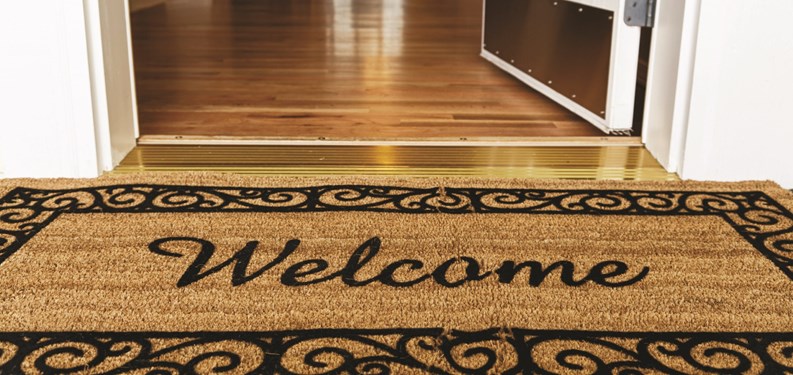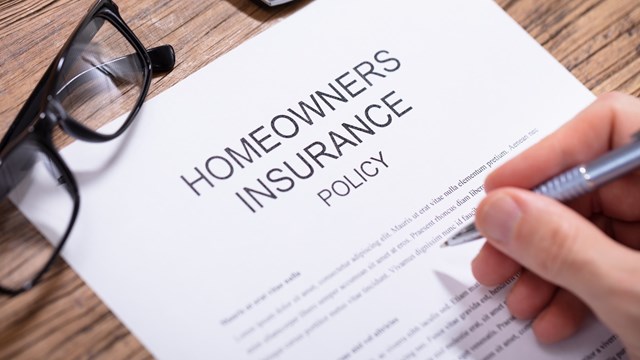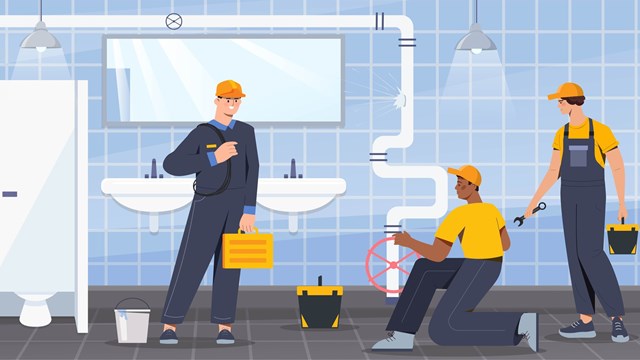One of the benefits of transitioning from renter to homeowner is the knowledge that your space is sacred and belongs only to you. But, when it comes to association living, sometimes unit owners have to give building staff or managers access to their homes for repairs or maintenance, with or without the owner being present. While that may be a less-than-ideal scenario for some unit owners, it is often a necessity. With the proper communication and expectations, those occasional visits can be less stressful and better understood.
Knowing the Law
Whether maintenance or repair visits are wanted or not, they are protected by the law in most states. In New York, the state statutes don’t address the issue directly. “The first places you must look are your bylaws if you're a condo, or the proprietary lease if you're a co-op, and any house rules,” remarks Beatrice Lesser, a partner at the law firm of Gallet Dreyer & Berkey, LLP in Manhattan. “For condos and co-ops, you need to be certain that the house rules were enacted with the necessary authority, because some boards seem to redo their house rules once a week. You can ask for the house rules and get four different versions.”
The house rules should allow for general access to owners' units for repairs and maintenance to common elements or for inspections with reasonable written notice. “The first thing a board should do as a housekeeping measure is look at what their documents actually say,” says Lesser. “Do they need some beefing up? A lot of co-ops were converted in the 1980's, and the issues that are covered in their documentation don't even exist anymore, whereas we now have newer and different issues, partly because of experience, having seen what happened over the past thirty years, and partly because the world has changed.”
While the regulations for gaining entry to a unit will be spelled out in the condominium’s governing documents, often those documents are out of date and don’t address modern circumstances. “Oftentimes we represent condos that are already decades old, so we’re not involved in the drafting of the governing documents,” says Attorney Stephanie Wiegand, an associate at the law firm of Griffin Alexander P.C., which has offices in Manhattan. “Whatever was drafted in there is pretty set and done, unless their documents give the board power to make up certain rules and regulations with regard to access to units or caring for common elements. If they do, then we can put together a resolution for our client and the board can sign off on that.”
While the law and governing documents may detail the cut-and-dry questions pertaining to unit access, ensuring an open line of communication with unit owners remains of vital importance. “Boards get sued for trespass and then they have to defend their entry, which is why it's so important to give a written warning of when you'll be entering the unit and for what purpose,” says Lesser.
“Every document should say how notices are to be sent, however, many buildings now have building-wide systems for sending emails, allowing for building-wide communications with the press of a button from the side of management, so they can say 'All the filters are going to be changed on the week of the 7th and this is the schedule.' Of course, this requires that you encourage owners to give you their email addresses and keep them current. These communication issues should be in the rules for buildings distributed at every closing, and somehow enacted to affect everybody in the building, even the old-timers.”
Some situations preclude the ability to notify residents in advance, says Wiegand. “If there’s an emergency situation where there is water leaking everywhere and the owner is not home, then somebody needs to go in immediately to prevent damage to the unit and to the common elements.”
Often, it can come down to a matter of judgment. “If you're having a major leak, you're going to go in,” remarks Lesser, “but I suggest that you always go in pairs, always with cameras recording the entry and the time spent in the unit, and that you immediately notify the owner. 'We had to get into your unit on Tuesday, and this is why, and this is what we found.' And if it was such a severe emergency, smelling gas for example, where they needed to break in and change a lock, let them know that you put a new lock on the door and that you have their new key. You never want someone to come home and have no notice that they're locked out of their home.”
Taking precautions when entering in those emergency situations can make all the difference when it comes to avoiding trouble, including potential accusations of impropriety.
“Typically,” says Wiegand, “the accusations we get are that a check off the counter is missing, or that somebody, say, took the clock off the wall. We always advise our clients to go in a unit with a third party present, like a plumber or a maintenance person, so you have witnesses to say they were there and they didn’t see anybody take anything.”
To avoid even the hint of impropriety, Matt Hohl, vice president of property management at Associa, which has offices in New Windsor, notes “We have these wonderful cell phones with us now that allow us to take photos and record video, so document as much as possible. Show what’s going on, what the condition is, and report back to not only the unit owner, but also the board, to make sure they’re aware.”
There are liability concerns anytime professionals or board members enter a unit without the owner present. “That's why we always try to protect ourselves by documenting that we're going into the unit,” remarks Wiegand. “We want documentation with the reasons we're going in, the time frame that we're going in, and if possible we want it in writing that they're aware we'll be entering the unit when they're not home, because unfortunately accusations of impropriety do occasionally happen.”
The right blend of insurance coverage can protect condos from much of the risk inherent in these situations—general liability insurance, property and casualty insurance, and director and officer liability insurance should adequately protect associations from most claims relating to these types of issues. “If it's your management company, your maintenance guy, or a contractor coming in for emergency repairs, you should ensure that your contract with them contains some sort of indemnification clause that indemnifies the association if the third party who entered the unit is being accused of damaging property, or being careless, or stealing something,” remarks Wiegand. “Don't rely on a proposal from a third party. Always have your legal counsel draft up an actual contract before they start doing work.”
Situations where the association needs to enter a unit without the owner present happen more often than one might suspect. “We come across these sometimes weekly,” says Hohl. “You have to do the best you can to notify the owner or the emergency contact for the owner, and always, always have somebody with you. You just never know what might come up. You don't know what you'll be walking into, and you're crossing the line of people's personal property, so you have to make sure you're being cognizant of the owner's rights.”
When to Stay Out
As important as it is to know when building staff or management can enter a unit, it is equally as important to know when they may not. “Your governing documents—the condo bylaws, or the property lease and any house rules will state the certain conditions under which the board or staff can enter,” remarks Lesser. “If you see that the documents really are not great and the building would have to be burning down before you could enter a unit, then you should think about amending them.”
One way to avoid the potential difficulties that arise as a result of entering an apartment without the owner is to provide training to management staff to ensure they understand when it is appropriate to do so. At Associa, Hohl says the company’s policies “recommend that building staff always clear it with the site manager before entering a unit, and that they always have somebody with them. Obviously if the manager is an hour away and it's an emergency, you document the situation, you work with your individual company's customer service reps to try to reach out to them at the same time. So even though you're going into the unit, you're in the process of letting the homeowner know that there's an issue and that you've got to enter their unit.”
Hohl warns against another scenario that could result in trouble. “Whether our staff gets involved in side jobs for unit owners depends on the client,” remarks Hohl. “If the community allows it, then you're bound by their direction. But we do point out that it has the potential for conflict of interest. Are they doing the work on their own time or are they really doing it on the community's time when they should be doing their due diligence on the common elements of the building? But side jobs are another reason to have entry forms as a part of your rule package, so that the homeowner has to sign off and allow staff entry. It protects the management company, too.”
The Owner’s Responsibility
While managers and board members may face the majority of liability in these situations of unsupervised access, unit owners also may run into a headache or two should they prove inflexible in allowing that access, especially when it comes to emergencies. There are times when the governing documents may have spelled out specific scenarios when access is necessary, including regularly scheduled maintenance like pest control. “Your governing documents may say that unit owners need to allow the association access in order to investigate and remedy certain issues with regard to health and safety, or with regard to the common elements, or with regard to maintenance and repair,” remarks Wiegand.
Should a unit owner refuse to allow an association access to carry out its statutory or contractual duties, the association may be forced to file a court order for the access it needs. “Everybody,” says Lesser, “is going to be unhappy in that situation. We've gone to court on those issues, and the tenant argues that they're allergic to the pesticides, or their pet is allergic, but meanwhile we have bed bugs.” That's when the board should look towards the business judgment rule, which states that owners must use their preferred vendors, including pest control. “It's within the co-op's purview of business judgment to be allowed to make the decision on which pest control company is hired, and that the method of pest control is the company's recommendation for the most effective way to handle it,” explains Lesser. “The complaining owner has a burden to show what's wrong with that method and to come up with an alternative that's just as good.”
In order to keep everyone safe and risk-free, the association should engage the owner and explain the need for entry. If possible, the board can request that a representative of the owner be present during entry—for non-emergency purposes—to ensure that someone is there to explain to the owner the condition of the property and the need for the repair or replacement.
Communication: Always the Best Solution
Communication can make a significant difference for both unit owners and association staff and board members. This is of special importance for residents who do not live in their apartments full time. “We have several communities where there are owners who rent out their units as an investment property,” remarks Wiegand. “Often times, they'll have tenants in there, and the tenants may know where to send their rent check to, but otherwise the association doesn't have a good address for the owners. Or they have a good address, but the unit owners aren't responding to their mail. It's important that associations make sure their databases of current phone numbers, email addresses, and mailing addresses are kept up to date.”
Tenant-occupied units are often addressed in amendments to the association's governing documents. “A lot of associations with a high number of units being used as rental properties in their community actually try to pass amendments with regard to the rules and regulations that surround leasing out a unit,” remarks Wiegand. “They try to require unit owners to keep updated lease riders and contact information, so that management, especially in an emergency situation, can still get in touch with them.” The relationship between tenants and the association can be difficult, though. “We can try to ask the tenant for their assistance, if they've been in contact with their landlord and we need more up-to-date contact information for the owner, but sometimes the tenants aren't willing to speak to the association about such things,” says Wiegand. “Or the tenant won't allow access, or the unit owner is telling the tenant to not allow access.”
Even before unit owners move into their buildings or communities, those owners should be made aware of the policies and protocols for admittance into units. “A good practice is to have an orientation for new unit owners,” notes Hohl, “and if there isn't an orientation, then there should at least be a receipt as part of their sales packet that states they've received the association's declaration, bylaws, rules, and regulations.”
The Unthinkable
What if an owner has played by the rules but suspects that a staff or board members has entered their unit inappropriately and without adequate reason? “If there's no reason to go in, then there's no reason to go in,” says Lesser. “The association and staff are obviously not allowed to just go into people's apartments just because they have access. But when people tell me they think a situation like that has occurred, I have to ask how they know. They have to have some evidence. There's nothing we can do if they can't show evidence.”
And says Hohl, “I haven't come up against this situation before because I try to be really careful. You always document, and you always have someone with you. If you have all the safeguards in place, then these accusations shouldn't happen.”
Certainly one of the best ways to avoid trouble is for everyone to agree on a policy that is in keeping with state law and ensuring that all unit owners understand the need for unit access, including their own responsibility for maintenance and safety for the community as a whole. No one likes the idea of someone entering their residence unattended, but on the other hand, if explained properly, it’s also possible to see emergency or maintenance-based entry as a safety net, a back-up for when troubles arise. If everyone works together for the well-being of the community and unit owners as a whole, then issues can be avoided and people can feel confident that their unit and their interests are being protected.
Liz Lent is a freelance writer and a frequent contributor to The Cooperator. Staff writer Jennifer Welch contributed to this article.










Comments
Leave a Comment